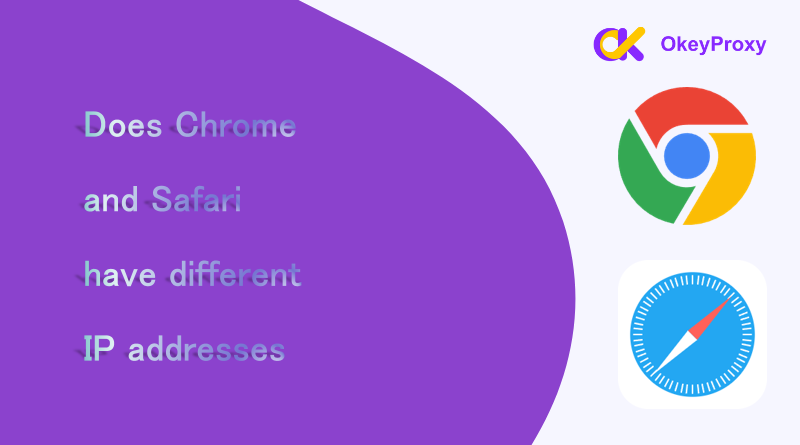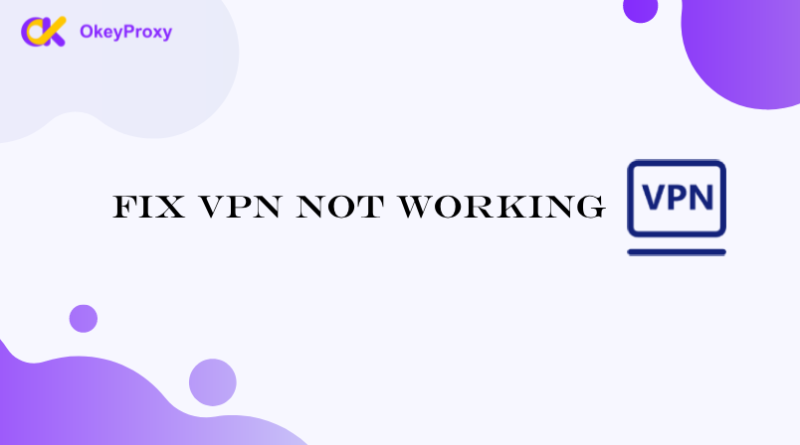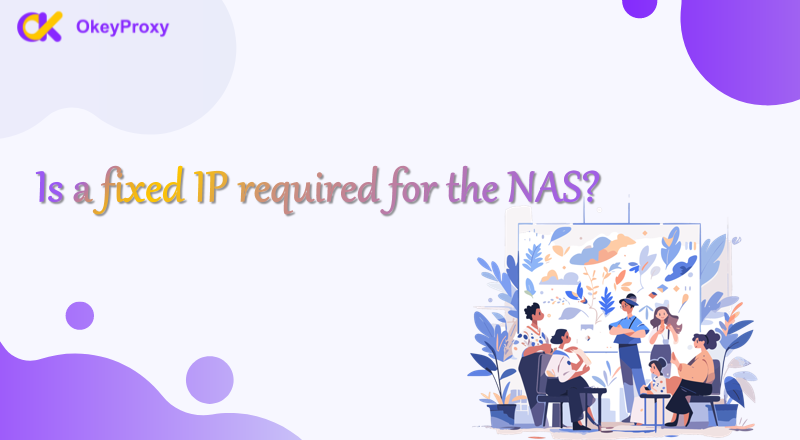When browsing web pages, your traffic is routed through an IP address. It identifies your device on the network to avoid wrong targets. Users usually use web browsers, popular choices like Google Chrome and Safari. Will browser choice affect your IP address in any way? In this blog, we’ll explore whether Safari and Chrome have different IP addresses, what factors influence this, and how to achieve different IP addresses using different browsers.
What Is IP Addresses
An IP address is a unique number identifier assigned to your device when connected to the internet. It allows websites to send data back to your browser correctly. An IP address can be static (unchanging) or dynamic (changing periodically). It is usually assigned by your Internet Service Provider (ISP), regardless of which browser you use.
Do Safari and Chrome Have Different IP Addresses
The short answer is usually no.

In most cases, or to say without special setup, both Chrome and Safari are used on the same device to connect to the same network, and they will generally use the same public IP address. This is because the IP address is assigned to your network and device, not the individual browser.
Here’s a detailed explanation:
Both browsers operate within the same network environment. If you are connected to your home Wi-Fi, both Chrome and Safari will share the same external IP address provided by your ISP.
Browser-Specific Settings
While the IP address remains the same, the browsers might have different settings or extensions that can affect how your data is handled. For instance, privacy-focused extensions may reroute traffic in ways that could obscure your actual IP address.
Factors That Can Affect Your IP Address
While Chrome and Safari will use the same IP address under common circumstances, several factors can cause different IP addresses in different browsers:
-
Proxies and VPNs
If you use a proxy server or VPN, both browsers will route their traffic through a third party and be assigned different IP addresses. This can result in different identified IP addresses when accessing websites.
-
Mobile Data vs. Wi-Fi
On a mobile device, if you switch from Wi-Fi to mobile data, the IP address will change. When using one browser on mobile data and the other on Wi-Fi, their IP addresses will be different.
-
Network Changes
Connecting to different networks (e.g. home, work, public Wi-Fi) will have different IP addresses. If you switch networks, you will notice that both browsers show the new IP address.
How to Have Different IP Addresses in Different Browsers
By employing techniques such as VPNs, proxies, and network changes, you can effectively have different IP addresses in different browsers, like Chrome and Safari.
1. Using Proxy Servers
Proxies act as intermediaries between your browser and the internet, allowing for separate IP addresses.
- Step 1:Find a reliable proxy service that provides different IP addresses.
- Step 2:Configure Chrome to use the proxy:Open Chromeand go Settings > Advanced > System > Open your computer’s proxy settings.Then enter the proxy details.
- Step 3:Make sure Safari is not using the same proxy configuration, or set it to use a different one if needed.Go to Safari Preferences > Advanced > Proxies and enter the new proxy settings.
This way, Chrome will use the proxy IP, while Safari can remain on your default IP.
Get $3/GB Trial Of Residential Proxies from OkeyProxy Now!
2. Using VPN Services
A Virtual Private Network (VPN) can route your internet traffic through different servers, allowing each browser to have a different IP address.
- Step 1:Choose a reputable VPN service that supports split tunneling (this allows you to choose which apps use the VPN).
- Step 2:Install the VPN application on your device.
- Step 3:Configure split tunneling to route only one browser (e.g., Chrome) through the VPN while keeping Safari on your original IP.
- Step 4:Connect to the VPN. Chrome will use the VPN-assigned IP, while Safari will continue with your local IP.
3. Using Different Networks
Switching between different network connections can also yield different IP addresses.
- Step 1:Connect to a different Wi-Fi network or use mobile data.
- Step 2:Open Chrome on one network (e.g., home Wi-Fi) and Safari on another (e.g., mobile data).
This will assign different IP addresses to each browser, as they will be on separate networks.
4. Using Browser Profiles
Creating separate profiles in Chrome can allow you to use different proxy settings or VPN connections, giving you the option to have different IP addresses.
- Step 1:In Chrome, create a new user profile by clicking on your profile icon > Add.
- Step 2:Configure the new profile to use a VPN or proxy, distinct from your main profile.
- Step 3:Use the new profile for browsing while keeping your main profile for regular use.
Safari does not support profiles in the same way, but you can use different configurations (proxy settings) as described above.
FAQs
-
Can I have different IP addresses for Chrome and Safari?
Yes, use different networks or VPNs. On the same network, they share the same IP address.
-
Do browsers track my IP address?
Yes, browsers can track your IP address for various purposes, including analytics and personalized content.
-
How can I hide my IP address?
You can use a proxy service or VPN to mask your IP address while browsing.
Conclusion
Google Chrome and Safari do not have different IP addresses when used on the same device and network. However, using proxies, VPNs, and network changes can get different IP addresses in different web browsers. This can enhance your privacy and allow you to access content without restrictions.

If you need proxies to change your IP on different browsers or devices, choose OkeyProxy, which focus on high-quality SOCKS5 proxies, including rotating residential proxies, ISP proxies, and datacenter proxies. 150M+ city-specific proxies covering 200+ regions for your choice. Contact it to get a trial today!





